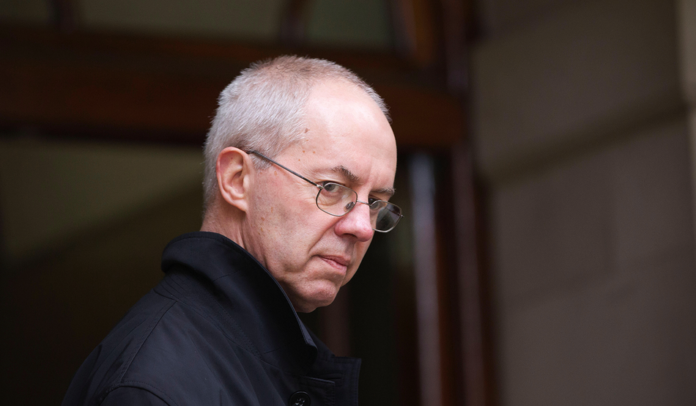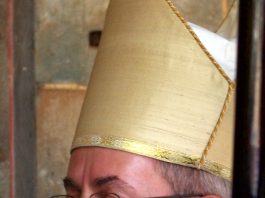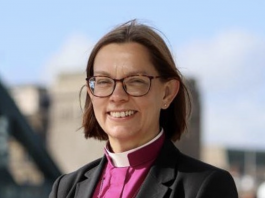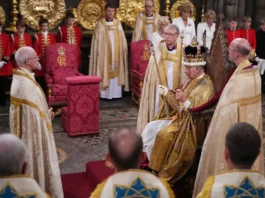The principle of neutrality is a consistent principle in Chinese cultural thought. Chinese Christianity will also inevitably be guided by this principle. For example, in terms of ecclesiastical polity, it will not lean towards the collectivist structure of Catholicism nor align itself with certain factions of extreme individualistic Protestantism. In theology, it will not lean too far to the right towards the so-called “fundamentalist” doctrines, nor lean too far to the left towards the “modernist” tendencies of liberal interpretation. However, neutrality is not about compromise or ambiguity; it is a creative synthesis. It is not rigid and mechanistic but rather dynamic and innovative.
The quotation above from the Anglican Sino-Christian theologian and philosopher Zia Nai-zin (謝扶雅 1892-1991) summarises not only Zia’s ideal for Sino-Christianity but the Anglicans’ ideal for Anglican Christianity: a balance between Catholicism and Protestantism and between modernism and fundamentalism. In Confucian terminology, this is the “Doctrine of the Mean”. This defines their expectations for the archbishop of Canterbury: the archbishop should never take sides but maintain unity in diversity within the Anglican communion. Justin Welby tries to achieve this goal, but both sides are disappointed by his incompetence, leading to his tragic end. Although I have never been Welby’s fan, I do not think he deserves such a shameful ending. My thought is: yes, Welby fails to uphold the Anglican doctrine of the mean, but who can? The difficulty is that while the new archbishop of Canterbury should bring unity in diversity, he/she will be hated by both the liberals and the conservatives, who dominate the Anglican communion and only want an archbishop on their side. This reveals the destiny of the new archbishop of Canterbury: that he/she will be inevitably hated by both sides.
The reason for Welby’s resignation is simple: conservative Anglican groups like Church Society weaponised the Makin report to attack him, while liberals remained silent when Welby was attacked. Makin report revealed that the Church of England delayed acting against the heinous abuses of John Smyth (1941-2018), who was a conservative Evangelical lay reader from Christ Church Winchester running the influential Iwerne camps from 1974 to 1981 and then several young men’s camps in Zimbabwe and South Africa. According to Welby’s letter of resignation, he was “informed in 2013 and told that police had been notified”, yet the Church of England took no action against Smyth. For this reason, conservative collection petitions called for Welby’s resignation.
Having seen the scenario above, any rational being would immediately ask lots of questions: Why did all bullets go to Welby but not the evangelical conservative Anglicanism to which Smyth belonged? If someone should resign, why should this person be Welby, who hinted that he was misguided that Smyth’s case was reported, and not other parties in the Church of England, e.g. the National Safeguarding Team? Should the police also share any responsibility? Welby’s quick resignation was contrasted by Pope Francis’ remaining in his see despite the storms of sexual harassment covering the Roman Catholic church for years. I joked with my Catholic friends, saying that the story might be different if Welby was a Catholic bishop, and they humorously replied: blame Henry VIII!
I was astonished at not only Welby’s resignation but also clergymen’s reactions. On 12 November at around 4 pm, I was in Gourock to see the sunset on a foggy day but ended up seeing the sunset of the archbishop on my mobile phone. It was already midnight in Hong Kong time when the archbishop of HKSKH, Andrew Chan, released his bilingual statement on Welby’s resignation, expressing his “gratitude to the Archbishop for his leadership”. Ironically, the Scottish Episcopal Church, which is geographically much closer, remained silent on Welby’s resignation till today (16 November). But very few bishops express gratitude for Welby’s service. The archbishop of York only “appreciates” Welby’s decision to “take his share of responsibility for the failures identified by the Makin review”, while Sarah Clark, the Bishop of Jarrow and Acting Bishop of Durham (which was Welby’s former title) only stated that she “understand and respect the Archbishop of Canterbury’s decision to resign”. And these befitting statements are contrasted by the “statement” signed by Martin Warner, the bishop of Chichester and a traditionalist Anglo-Catholic. Instead of expressing any gratitude for Welby’s decision to resign, Warner said: “The consequent resignation of Justin Welby as Archbishop of Canterbury is an indication of the gravity that we must attach to the crimes that are outlined in that report and the seriousness with which the Church of England takes it safeguarding responsibilities.” His teaching tone made me feel so uncomfortable during my train journey back to Glasgow when the railway was fully covered by mist and darkness by 5 pm.
There are lots of reasons for Welby’s unpopularity, which are generally related to his incompetence in maintaining unity in diversity. Welby has no intellectual competence to balance the extremes between modernism and fundamentalism. He does not have a PhD, a DD, a DTh or even a DMin, and yet he is surrounded by bishops and archbishops with doctorates. Furthermore, Welby’s background limits his reputation. From environmentalists’ and leftists’ perspectives, Welby has the “original sin” owing to his business background in the oil industry and his posh education background at Eton College. Ecumenically speaking, Welby’s posh background and lack of charisma are further contrasted by Pope Francis (who is well-known for his humility) and Patriarch Bartholomew (who is an environmentalist). Unsurprisingly, his background as an open evangelical made him unpopular among the liberal high church and traditionalist Anglo-Catholic, but his approval of female bishop ordination and the blessings of same-sex union (not matrimony) also provoked the conservative evangelicals. Welby’s tragic ending reminds me of the fact that his ordination was initially rejected by the late bishop of Kensington, John Hughes (1935-1994), who told Welby, “There is no place for you in the Church of England.” Looking back to history, bishop John’s word is prophetic.
However, my major issue with Welby is his close friendship with Paul Kwong, the former archbishop of HKSKH and an infamous pro-Communist member of the Chinese People’s Political Consultative Conference. I can imagine Welby’s calculation behind it: he thought Paul Kwong was an East Asian outsider in the current schism between the liberals and the conservatives, which are led by North American White and African bishops, respectively, and HKSKH does not take sides on gender controversies (The Anglican Church of Japan and the Anglican Church of Korea are inclined to progressivism while the Church of the Province of South East Asia is conservative evangelical). But Welby forgot that an alliance with a pro-communist province would impact the ecumenical relations with the Roman Catholic church and other Protestant denominations, exposing his ignorance of diplomacy in the New Cold War period and his insensitivity to human rights (remarkably freedom of religion) controversies in China. Moreover, Welby does not know that his reckless political stand discourages Hong Kongese immigrants from joining the Church of England. Based on these observations, I must conclude that Welby is incompetent to be the Archbishop of Canterbury: he cannot bring unity to the Anglican Communion. But the question is: who can?
Theologically speaking, the see of Canterbury is important because it is the source of the apostolic succession in Anglicanism. The Archbishop of Canterbury has no authority over other primates; to manifest the Anglican Doctrine of the Mean and maintain unity in diversity, he needs both intellectual knowledge and spiritual leadership rather than taking sides between modernism and fundamentalism. Sadly, neither the conservatives nor the liberals want to have a neutral Archbishop of Canterbury; they want an archbishop on their side because they believe God is on their side. If the new archbishop, whether he/she is a man or woman, White, Latin, African, South Asian or East Asian, wants to bring unity to both sides, he/she will be hated by both sides. Who is ready to answer the call and bear this Canterbury cross?
Dr Andrew Ka Pok Tam is a Postdoctoral Affiliate Researcher at the School of Languages and Cultures, University of Glasgow



